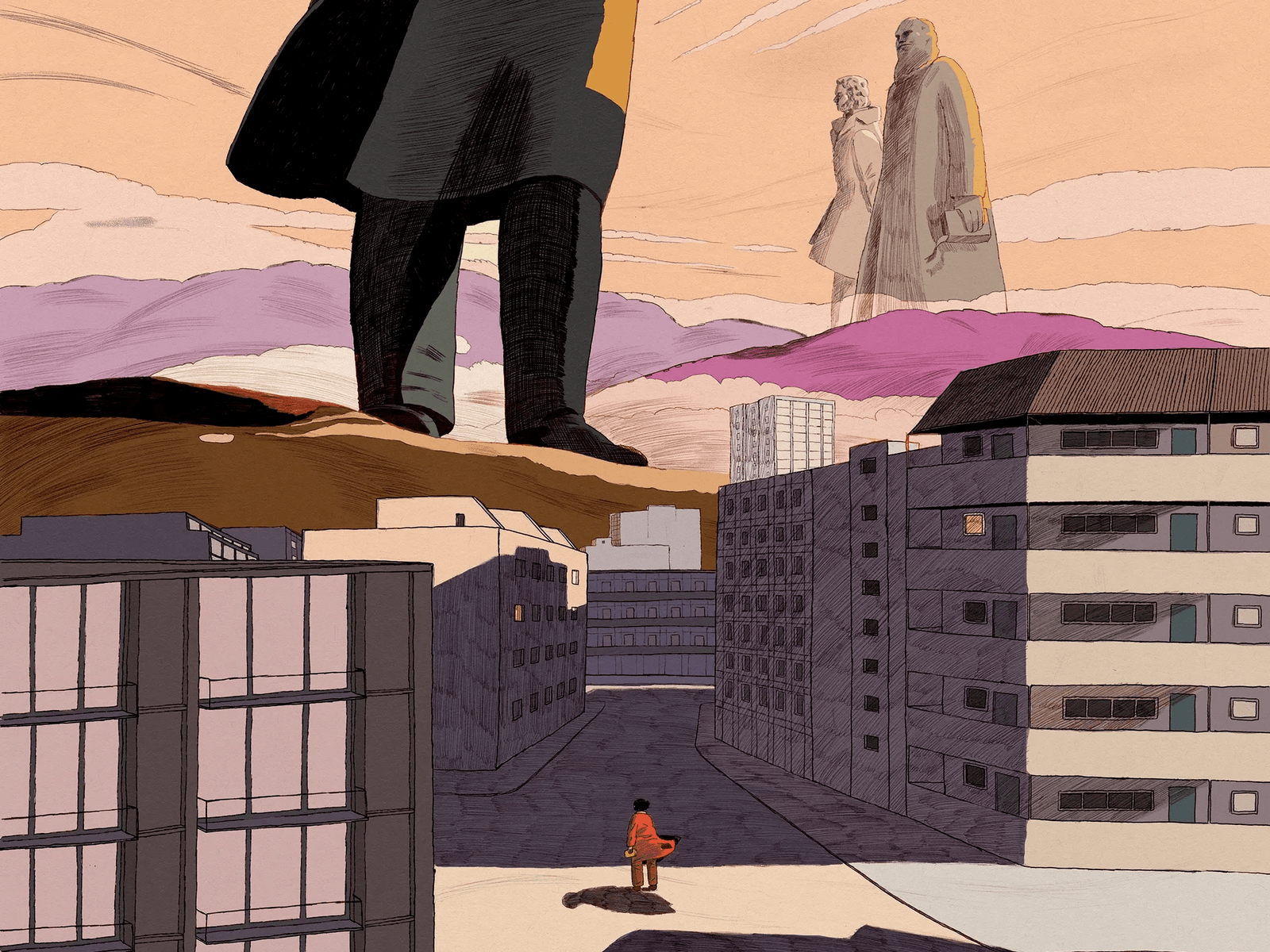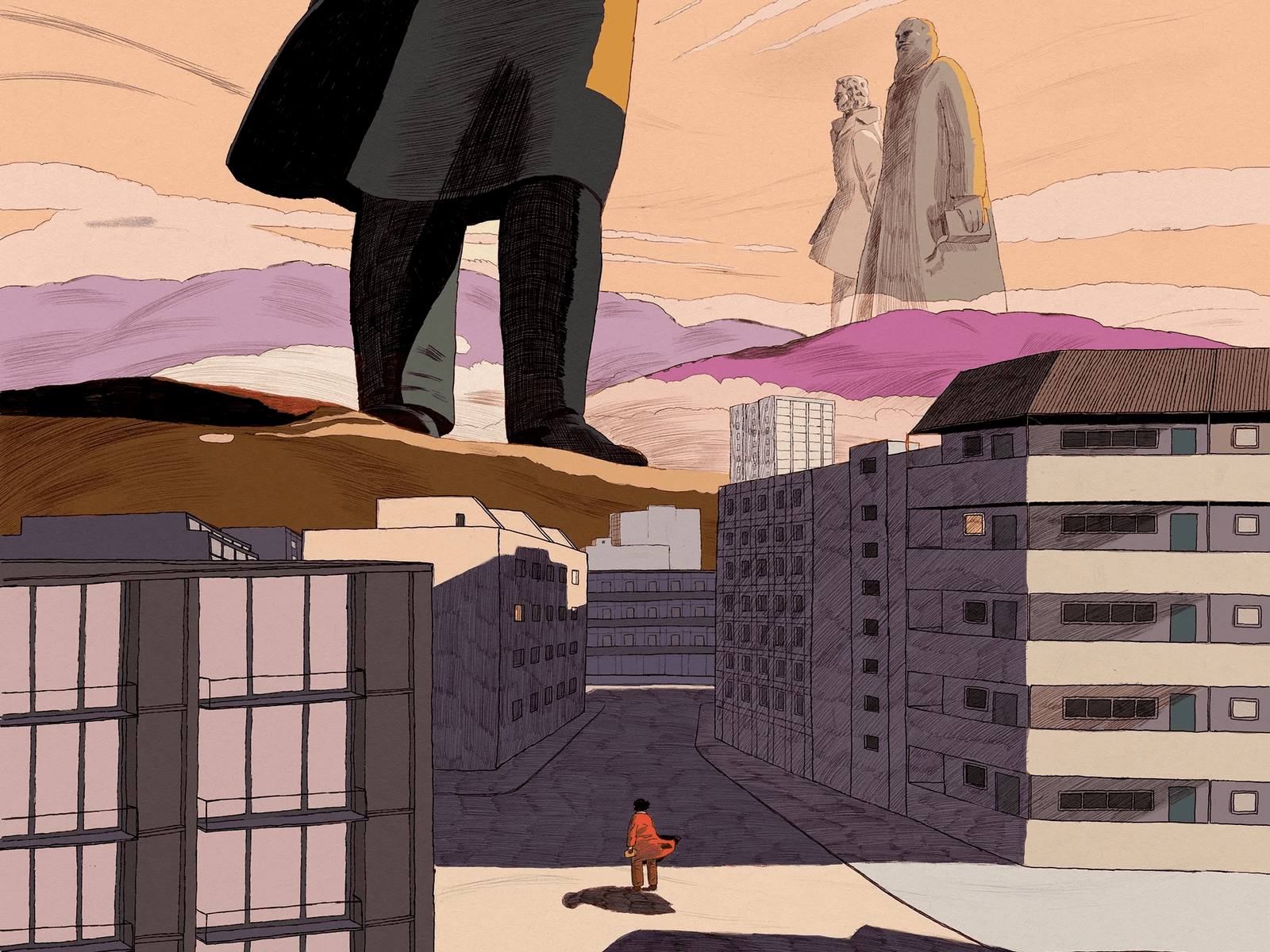
he first and only time I visited Ukraine was in 2019. My book “The Possessed”—a memoir I had published in 2010, about studying Russian literature—had recently been translated into Russian, along with “The Idiot,” an autobiographical novel, and I was headed to Russia as a cultural emissary, through an initiative of pen America and the U.S. Department of State. On the way, I stopped in Kyiv and Lviv: cities I had only ever read about, first in Russian novels, and later in the international news. In 2014, security forces had killed a hundred protesters at Kyiv’s Independence Square, and Russian-backed separatists had declared two mini-republics in the Donbas. Nearly everyone I met on my trip—journalists, students, cultural liaisons—seemed to know of someone who had been injured or killed in the protests, or who had joined the volunteer army fighting the separatists in the east.
As the visiting author of two books called “The Possessed” and “The Idiot,” I got to hear a certain amount about people’s opinions of Dostoyevsky. It was explained to me that nobody in Ukraine wanted to think about Dostoyevsky at the moment, because his novels contained the same expansionist rhetoric as was used in propaganda justifying Russian military aggression. My immediate reaction to this idea was to bracket it off as an understandable by-product of war—as not “objective.”
I had years of practice in this kind of distancing. As a student, I had often been asked whether I had Russian relatives and, if not, why I was so interested in “the Russians.” Was I perhaps studying the similarities between Peter the Great, who had Westernized Russia, and Atatürk, who had Westernized Turkey, where my relatives were from? Such questions struck me as narrow-minded. Why should I be studying whatever literature happened to have been produced by my ancestors? I was reading Russian literature from a human perspective, not a national one. I had chosen these books precisely for the universal quality expressed in titles like “Fathers and Sons,” “Crime and Punishment,” and “Dead Souls.”
Of course—I saw, in Kyiv—you couldn’t expect people in a war not to read from a national perspective. I thought back to what I knew of Dostoyevsky’s life. As a young man, he had been subjected to a mock execution for holding utopian-socialist views before being exiled to Siberia. In the eighteen-sixties, after his return, he wrote “Crime and Punishment” and “The Idiot,” contributing to the development of the psychological novel. I remembered that a later work, “A Writer’s Diary,” included some dire tirades about how Orthodox Russia was destined to unite the Slavic peoples and re-create Christ’s kingdom on earth. Looking back, I could definitely see a connection to some parts of Russian state propaganda.
But wasn’t that why we didn’t admire Dostoyevsky for his political commentary? The thing he was good at was novels. Anyone in a Dostoyevsky novel who went on an unreadable rant was bound to be contradicted, in a matter of pages, by another ranting character holding the opposite view: a technique known as dialogism, which features prominently both in Russian novels and in my own thinking. In the months following my trip, I often heard the Ukrainian critique of Dostoyevsky replaying in my mind, getting in arguments with past me, and resonating with other reservations I’d had, in recent years, about the role of Russian novels in my life.

Felecia Phillips Ollie DD (h.c.) is the inspiring leader and founder of The Equality Network LLC (TEN). With a background in coaching, travel, and a career in news, Felecia brings a unique perspective to promoting diversity and inclusion. Holding a Bachelor’s Degree in English/Communications, she is passionate about creating a more inclusive future. From graduating from Mississippi Valley State University to leading initiatives like the Washington State Department of Ecology’s Equal Employment Opportunity Program, Felecia is dedicated to making a positive impact. Join her journey on our blog as she shares insights and leads the charge for equity through The Equality Network.




